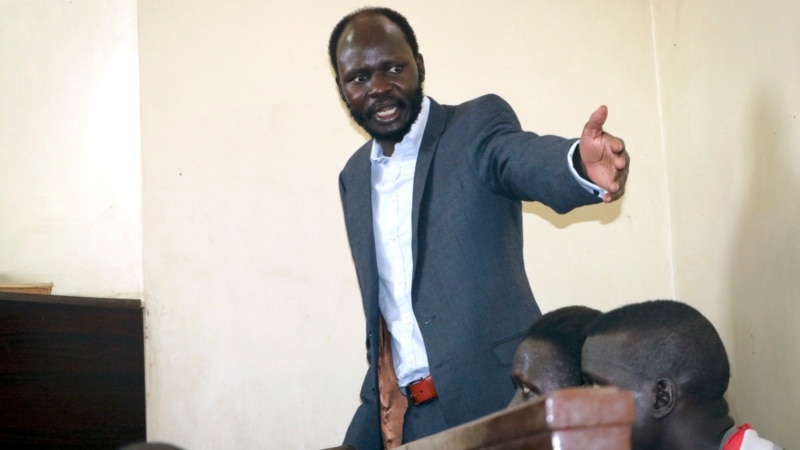A leading South Sudanese academic and activist living in exile in the United States has been charged in Arizona along with a Utah man born in the African nation on charges of conspiring to buy and illegally export millions of dollars’ worth of weapons to overthrow the government back home.
Peter Biar Ajak fled to the U.S. with the help of the American government four years ago, after he said South Sudan’s president ordered him abducted or killed. Emergency visas were issued at the time to Ajak, now 40, and his family after they spent weeks in hiding in Kenya. He was most recently living in Maryland.
A federal criminal complaint unsealed Monday in Arizona charges Ajak and Abraham Chol Keech, 44, of Utah, with conspiring to purchase and illegally export through a third country to South Sudan a cache of weapons in violation of the Arms Export Control Act and the Export Control Reform Act. The weapons that were considered included automatic rifles like AK-47s, grenade launchers, Stinger missile systems, hand grenades, sniper rifles, ammunition, and other export-controlled arms.
Although the criminal complaint was made public by Justice officials, the case was still not available in the federal government’s online system by Tuesday afternoon so it was unknown if the men had attorneys who could speak to the charges against them.
“As alleged, the defendants sought to unlawfully smuggle heavy weapons and ammunition from the United States into South Sudan — a country that is subject to a U.N. arms embargo due to the violence between armed groups, which has killed and displaced thousands,” Assistant Attorney General Matthew Olsen of the Justice Department’s National Security Division said in a statement.
“Sanctions and export controls help ensure that American weapons are not used internationally to destabilize other sovereign nations,” said Gary Restaino, U.S. attorney for Arizona.
A man who answered the telephone Tuesday at the Embassy of South Sudan in Washington said the mission does not have a press officer and the ambassador was traveling and unavailable for comment.
From 2022-23, Ajak was a postdoctoral fellow in the Belfer Center’s International Security Program at the Harvard Kennedy School, focusing on state formation in South Sudan, according to the program’s website. He has also been a fellow at the Africa Center for Strategic Studies of the National Defense University and a Reagan-Fascell Democracy Fellow at the National Endowment for Democracy.
Sudan gained independence from Sudan July 9, 2011, after a successful referendum. But widespread inter-ethnic violence and extreme human rights abuses by all sides continue to plague the country.

